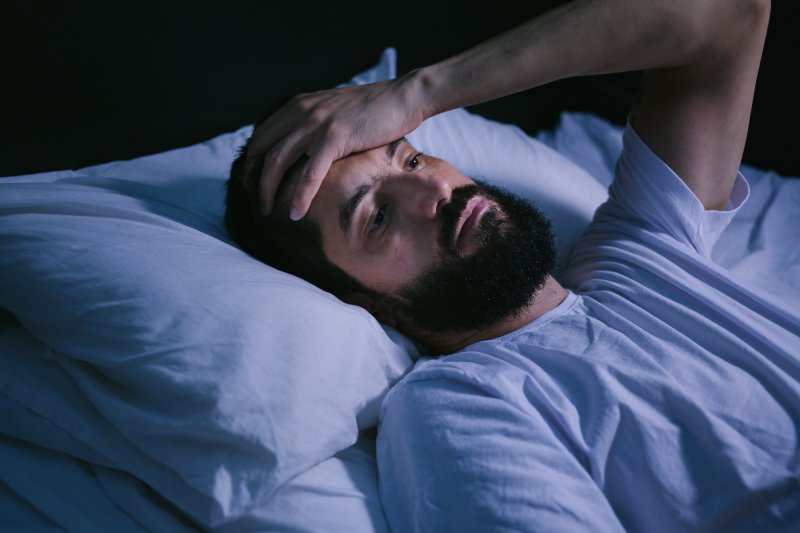Can’t Sleep, Can’t Smile: The Link Between Sleep Apnea and Depression
March 7, 2025

Most people think of sleep apnea as “a snoring problem,” but it’s far more than that. The condition doesn’t just make you tired. It can affect your mood, memory, and even your mental health. In fact, growing evidence from studies by institutions like the CDC suggests that untreated sleep apnea may contribute to anxiety and depression in adults. Here’s what you need to know about this silent connection and how you can beat it.
What Is Sleep Apnea?
Sleep apnea is a condition where your airway becomes partially or fully blocked while you rest, causing you to stop breathing briefly, often multiple times per hour. While you may not notice every episode, your body definitely does.
Those constant disruptions can leave you feeling groggy, irritable, and unfocused during the day, even if you think you got a full night’s sleep.
Poor Sleep Affects Your Brain
Sleep is one of the most essential needs for mental wellness. It helps regulate your emotions, process stress, and restore energy for the next day. Without enough restful sleep, your brain can struggle to stay emotionally balanced.
Over time, chronic sleep deprivation can lead to:
- Irritability and mood swings
- Difficulty concentrating
- Memory issues
- Increased risk of anxiety or depression
When your body and brain are constantly running on empty, it’s no wonder your mental health takes a hit.
The Connection Between Sleep Apnea and Depression
Studies by the Centers for Disease Control and Prevention (CDC) and BMC Public Health have shown that people with sleep apnea are more likely to experience symptoms of depression.
One theory is that interrupted sleep interferes with neurotransmitters like serotonin and dopamine, which are key chemicals for mood regulation.
Even worse? Many people don’t know they have sleep apnea. They decide their fatigue and low mood are just stress or burnout, never realizing the problem is how they’re sleeping.
What Can You Do About It?
If you’re feeling tired all the time or struggling with your mood, talk to your doctor and dentist. A sleep study can determine if sleep apnea is affecting your health, and treatment can make a world of difference.
Dental professionals can even offer non-CPAP options like custom oral appliances, upper airway surgery, and non-invasive NightLase. These options tackle sleep apnea in different ways, providing much-needed relief.
Sleep apnea is more than an annoyance—it can chip away at your health and happiness over time. However, it’s important to know that there’s always hope. Talk to your dentist about diagnosis and treatment. They can assist you in getting the care you need to improve your energy, your mood, and your outlook on life.
About the Author
Dr. James T. Sierra is a highly accomplished dentist with a doctorate from The University of Texas Health Science Center at San Antonio. As a Diplomate of the American Board of Dental Sleep Medicine and a leader in advanced treatment techniques like NightLase, he understands the deep connection between oral and overall health. Call (281) 482-2631 to schedule a sleep apnea consultation at Friendswood Dental Group or visit our website to explore other services.
No Comments
No comments yet.
RSS feed for comments on this post.
Sorry, the comment form is closed at this time.

 Check-Ups
Check-Ups Dental
Dental 3-on-6™
3-on-6™ Cerec® Same-Day
Cerec® Same-Day Full Mouth
Full Mouth Invisalign®
Invisalign® Cosmetic
Cosmetic Sedation
Sedation